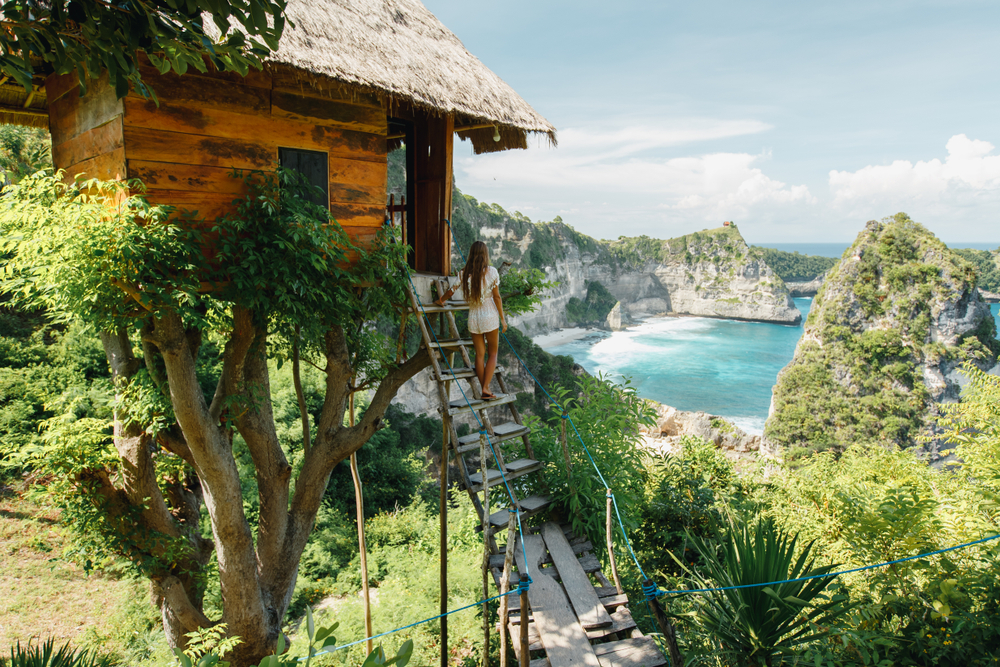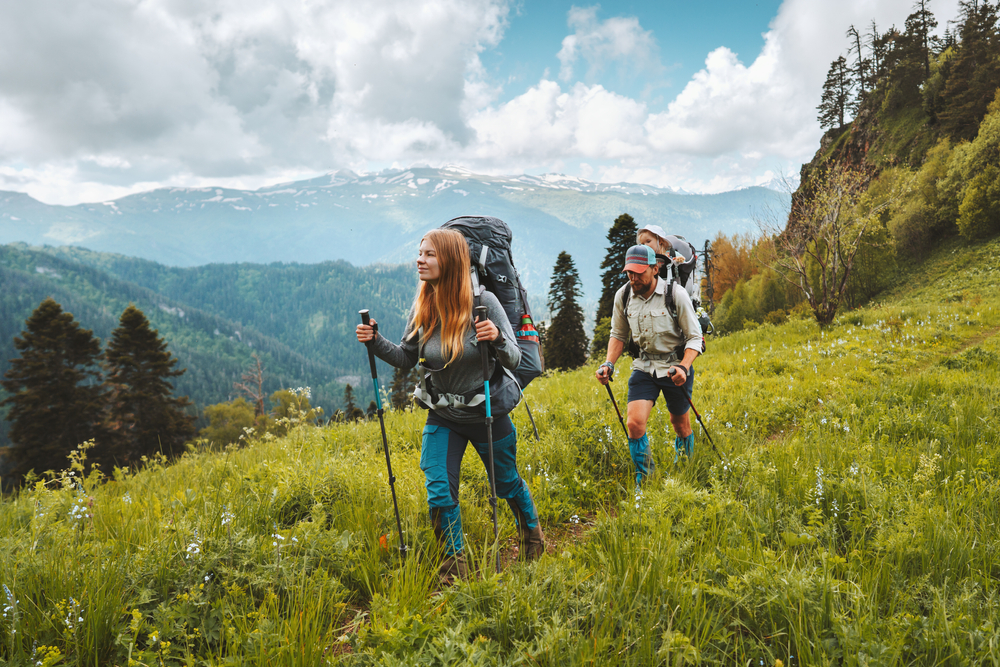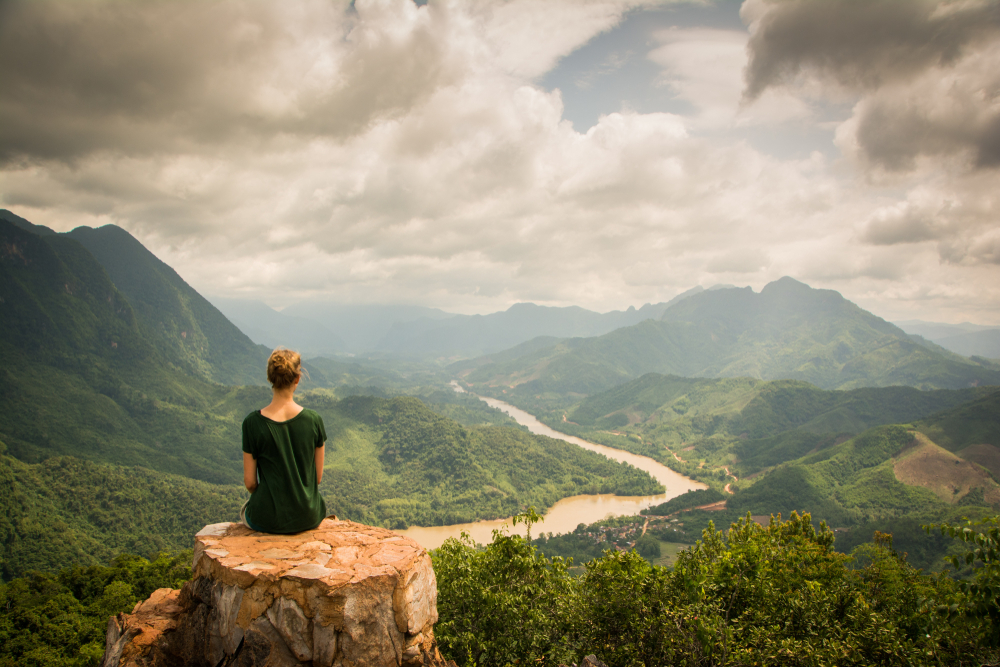Sustainable Journeys: Embracing Eco-Friendly Travel Practices in 2024

Have you ever considered that your zest for exploring new horizons could contribute to the health of our planet? As we approach 2024, the drumbeat for sustainable travel is louder than ever. Our globe-trotting adventures come with a significant responsibility: to tread lightly and care deeply for the environments and communities we visit. We’re at a pivotal moment where the allure of distant lands must be balanced with the pressing need to preserve them. Join me as we explore actionable ways to make your travels a positive force, ensuring that the breathtaking destinations we all dream about can be enjoyed for generations to come. Stay with me on this journey, where we look beyond the horizon and see the impact of our footprints, cultivating an itinerary for travel that aspires to do good, going well beyond just doing no harm.
The Increasing Call for Sustainable Tourism

With images of overtourism’s adverse effects and climate change headlines becoming ever more frequent, the urgency to adopt eco-friendly travel practices is mounting. Our once pristine paradises are now facing the threat of degradation, and it’s not just the environment that’s taking a hit; local communities and economies, too, are feeling the pressure. The travel industry, accounting for about 8% of global carbon emissions, is at a crossroads – continue on the trodden path or forge a new sustainable route.
An Introduction to Sustainable Tourism
So, what exactly is sustainable tourism? According to the United Nations Environment Programme (UNEP), it’s deemed as tourism that takes full account of its current and future economic, social and environmental impacts, addressing the needs of visitors, the industry, the environment and host communities. In practice, it means traveling in ways that respect natural habitats, support local cultures, and promote economic development. The ripple effect of our travel choices is more profound than many realize, and it’s time to take a closer look at those implications.
Why It Matters Now More Than Ever
But why the urgency? The answer lies in the escalating environmental challenges of our time: climate change, biodiversity loss, and resource depletion. The tourism industry isn’t isolated from these issues; in fact, it both contributes to and is affected by them. From the reefs of Australia to the ancient rainforests of South America, the landmarks and ecosystems that draw visitors are under threat. As travelers, we have a vested interest in preserving the very attractions we cherish. A recent study by the Global Sustainable Tourism Council underlined that a sustainable approach can significantly lessen negative impacts and amplify the positive ones.
Simultaneously, there’s been a notable shift in how people choose to travel. Conscious travel isn’t just a niche anymore; it’s quickly becoming the norm, driven by a generation of travelers demanding responsible and authentic experiences. The question is, are we ready to respond to this call to adventure with the future in mind?
As you ponder these urgent matters, stay tuned for our next segment where we unveil the pillars that solidify the foundation of sustainable travel. Curious about how you can make each journey count for the planet? We’ll take you through the environmental, social, and economic aspects that every aware traveler must consider.
The Pillars of Sustainable Travel

When we talk about traveling sustainably, there’s a trio of core values that anchor our efforts: environmental, social, and economic sustainability. These are not fleeting trends but essential considerations that guarantee our adventures today don’t jeopardize the possibilities of tomorrow.
Boosting Environmental Sustainability
Imagine stepping into a destination that has been untarnished by the footprints of time and tourism – that’s the goal of environmental sustainability in travel. We aim to tread lightly, embracing eco-friendly behaviors that minimize our carbon footprint. This can mean choosing to travel by bike or public transit over renting a car, staying in eco-lodges that use renewable energy, or simply refusing single-use plastics. A study by Nature Climate Change highlighted that tourism represents about 8% of global greenhouse gas emissions, revealing the critical need for each one of us to adopt greener travel practices.
- Offsetting carbon emissions by investing in renewable energy projects
- Protecting local ecosystems by adhering to ‘leave no trace’ principles
- Choosing tours and experiences that prioritize conservation
Giving Back Through Social Sustainability
As travelers, we carry the opportunity to be ambassadors of positive change within the communities we visit. Social sustainability is about forming genuine connections, respecting cultural traditions, and ensuring the inclusivity and equitable treatment of those who make our journeys so memorable. By purchasing local handcrafts, joining community-run tours, or volunteering our skills responsibly, we empower those whose home we’re guest in.
- Engaging with local artisans and attending cultural events
- Participating in volunteering programs with a track record of positive community impact
- Respecting local customs and learning a few words in the native language to connect more deeply with residents
Ensuring Economic Sustainability
Travel is a powerful economic engine, and sustainable tourism ensures this engine runs on a fuel of fairness and support for local economies. Choosing local accommodations over international chains, eating at family-owned restaurants, and shopping at local markets are choices that can course-correct tourism’s impact from generic to genuinely beneficial. In doing so, we help maintain cultural diversity and create a sustainable flow of income that enriches the community.
- Investing in local products and services to foster job creation
- Partaking in tourism activities that reflect fair trade principles
- Learning from local guides with in-depth knowledge about their homeland
Our collective actions write the narrative of travel’s impact on our planet; to embrace the role of a conscious traveler is to take authorship of a future story that celebrates rather than mourns. As we take this information forward, I invite you to consider: how will your next travel choice reinforce the narrative of a greener, kinder, and more responsible world?
Stay tuned, as we next look at the different modes of transport that can greatly define the carbon footprint of your journey. Have you ever considered the environmental perks of train travel or the holistic benefits of biking and walking? Answer coming right up!
Eco-Friendly Ways to Travel

Hey fellow explorers, let’s talk about something that hits home for all of us: the environmental footprint of our adventures. We’ve embraced the essence of sustainable travel, but how do we actually get from A to B in a way that’s kind to our planet?
Train Travel: The Eco-Friendly Transportation Choice
Imagine gliding through picturesque landscapes, nestled in a comfy seat, without the heavy carbon price tag. That’s the charm of train travel for you. It’s not just about the romance of the rails or the nostalgia of a bygone era; train travel significantly reduces your ecological footprint.
- A study comparing travel methods showed that taking a train can produce up to 70% less carbon emissions than flying. Quite the difference, don’t you think?
- Modern trains have evolved with energy-efficiency in mind, harnessing technological advancements like regenerative braking and electrification.
“The journey matters as much as the destination,” they say, and when you choose the tracks, you’re already contributing to a greener tomorrow. And it’s not just about your carbon footprint – train travel often affords you the luxury of space, comfort, and the chance to socialize, turning the ride itself into a memorable part of your travel experience.
Biking and Walking: The Zero-Emission Travel Option
When it comes to roaming around your chosen destination, I can’t champion biking and walking enough. It’s the ultimate zero-emission travel choice, putting you in direct contact with the surroundings while keeping you fit.
Biking is both efficient and exhilarating – picture yourself cycling through the city streets of Amsterdam or along the serene paths in Copenhagen. Studies have shown the health benefits of cycling are immense, from improved mental well-being to reduced risk of heart diseases.
- Walking tours offer a slower-paced but equally enriching way to explore. You’ll find hidden gems and engage with the local environment in a profoundly personal way.
- These modes of travel are as green as it gets, fostering a strong connection to the places and people you visit.
As John Muir once said, “In every walk with nature, one receives far more than he seeks.” This sentiment rings true whether you’re on two wheels or taking strides on your own two feet – the intimate encounters with nature and local life are priceless.
So, have you already considered how your next journey’s transportation choices impact our beautiful Earth? Ponder on this as you prepare for your next adventure – there’s an exciting path to tread that’s gentle to our environment. And remember, the more mindful we are about our travel decisions, the more we ensure that the treasures we seek today will be cherished by travelers of tomorrow. Curious about how you can integrate these eco-friendly travel practices into your everyday trips? Stay tuned to find out how you can weave sustainability into every step of your journey!
Practical Ways to Embrace Sustainable Travel

Now, let’s talk brass tacks—how can you weave sustainability into the very fabric of your travel experiences? After all, meaningful change often begins with small, conscious decisions that ripple outward.
Traveling Off-Peak and Off-Beat
Picture the serene beauty of a tourist hotspot, without the crowds. Traveling during off-peak seasons or venturing to less-known destinations isn’t just a secret to a more relaxing holiday—it’s a sustainability gem. The benefits? You’ll:
- Avoid contributing to the over-tourism burdening popular sites
- Help distribute your tourist dollars to places that need it most
- Gain a truly unique perspective on the local culture and environment
“By choosing the path less traveled, you’re treading lightly on the Earth, and often, finding the most authentic experiences.” Isn’t that the essence of travel?
Eco-Conscious Accommodation
Choosing where to stay is like picking a second home—it should reflect your values. How does solar-powered heating, rainwater harvesting, or farm-to-table dining sound? More accommodations are adopting green practices, and they often boast these on their websites. Look for
- Eco-certifications or sustainability awards
- Policies on waste reduction and energy conservation
- Initiatives to support local communities
A night’s stay can mean more than just rest—it can imply a stand for the planet.
Shopping and Dining Local
When you shop or dine locally, you’re not just getting your hands on fresh, authentic flavors—you’re playing a part in a sustainable economic cycle. Isn’t that a delicious thought? Support the artisans crafting traditional souvenirs, and savor the cuisine at a small eatery that sources its ingredients locally. Your choices can:
- Empower local entrepreneurs and preserve cultural traditions
- Reduces transportation emissions linked to importing goods
- Help you connect more genuinely with the culture and its people
Making Conscious Choices about Wildlife Experiences
The call of the wild is strong, but how we answer it matters profoundly. When picking wildlife tourism experiences, it pays to do a bit of homework:
- Research sanctuaries and conservations with a track record of ethical treatment
- Opt for experiences that promote natural animal behaviors over entertainment
- Ensure your visit contributes to conservation efforts
“The greatness of a nation and its moral progress can be judged by the way its animals are treated.” — absolutely a mantra for the responsible traveler.
Feeling inspired to make a difference? The journey to sustainable travel doesn’t stop here. So, what’s your next move to ensure your wanderlust doesn’t leave a negative mark on our planet? Let’s keep the momentum going, and in our next segment, we’ll dive into resources that’ll equip you for a more eco-conscious adventure. Ready to become a guru in green globe-trotting?
Helpful Resources For Sustainable Travel Practices

Embarking on a sustainable travel journey can seem like uncharted territory, but don’t fret, my eco-conscious friend! There’s a whole world of resources at your fingertips to ensure your adventures tread lightly on our precious globe. The websites I’m about to share with you are treasure troves of green travel wisdom, brimming with tips and insights to make your next trip as sustainable as it is memorable.
Websites for More Tips
First up, let’s talk about SustainableTravel.org. This site is a wellspring of knowledge, offering the top 10 tips for sustainable travel that are as practical as they are impactful. From learning to respect local cultures to reducing plastic waste, their guidelines are backed by heartening studies that showcase the significant positive changes you can make.
Next on the green travel guide list is PinaTravels.org. Immerse yourself in a world where sustainability isn’t just a concept but a way of life. Their recommendations are woven with real-life stories, showcasing the profound effects of sustainable choices on the environments and communities we visit. It’s not just about the journey; it’s about the footprints we leave behind.
For those of you yearning to couple sustainability with comfort, EcoBnB.com is the resource you’ve been dreaming of. This platform is your gateway to eco-friendly accommodations where green roofs, organic gardens, and renewable energy sources are the norms. Each stay promises not just a getaway but a chance to support visionary practices that are shaping the future of travel.
Now that you’re armed with the knowledge to make your next excursion a pillar of sustainability, do you feel ready to transform your travel habits? Stay tuned, because what’s coming next will present a vision of green horizons and the innovations carving the path. Can you guess what futuristic eco-friendly travel developments are already taking flight? Keep reading to find out.
Looking Forward to a Greener Future in Travel

As we navigate towards the horizon of tomorrow’s travel scene—it’s not just about the destinations anymore, but the footsteps we leave behind. The future of sustainable travel is blossoming before our eyes, bringing with it a garden of green innovations we can hardly wait to explore.
Innovations in Eco-Friendly Travel
The wheels of change are turning, my friends, and they’re powered by the latest eco-friendly travel innovations. Imagine a world where your flight across the blues and greens of Earth contributes to reforestation, with airlines committing to carbon-neutral paths. Real examples abound; from biofuel-powered aircraft soaring through our skies to solar-paneled resorts nestling quietly in nature’s embrace, the alignment of technology with eco-consciousness is already unveiling a new chapter in travel.
But it’s not just about energy—think biodegradable luggage, made of materials that love our planet as much as we do, or the rise of ‘smart’ hotels using IoT to slash energy use. Studies have shown this integration of tech and sustainability can significantly reduce a traveler’s carbon footprint. It’s a thrilling time to be a globe-trotter, witnessing daily how even the smallest tech advancements can sprout significant environmental gains.
The Role of Travelers
The future of green travel isn’t just about the big players making large-scale changes; it’s also in the carry-on baggage of every traveler. Each of us holds the power to fuel the sustainability engine with our choices. Whether it’s by joining local clean-up activities that inspire global movements or opting for digital itineraries over paper ones, the collective impact is vast.
Consider the story of a small town enriched by travelers favoring homestays and local craftsmanship—the social fabric strengthens, and cultural preservation blossoms hand in hand with a blooming economy. Each of us can be a crucial part of these stories. The domino effect of our travel decisions, backed up by numerous community success tales and research papers, is proof positive that our travel choices matter in painting a greener tomorrow.
Wrapping Up the Journey
So let’s stitch together the patchwork of ideas from our sustainable travel tapestry. It’s clear; the way forward is via paths lined with respect for nature, culture, and community. From selecting transportation that whispers rather than roars against the winds, to resting our heads in places where green roofs are as common as star-filled skies—sustainable travel practices reach far beyond the now; they cradle the very future of globetrotting in their hands.
We wave goodbye to travel as we knew it and welcome a new era where each passport stamp can be a symbol of our commitment to Earth’s well-being. Adventure still calls, but now it calls for mindfulness, and I believe we are more than ready to answer. So, grab your eco-friendly gear and let’s set forth into a world where our travel tales aren’t just about the sights we’ve seen but about the positive footprints we’ve left behind for generations to come.